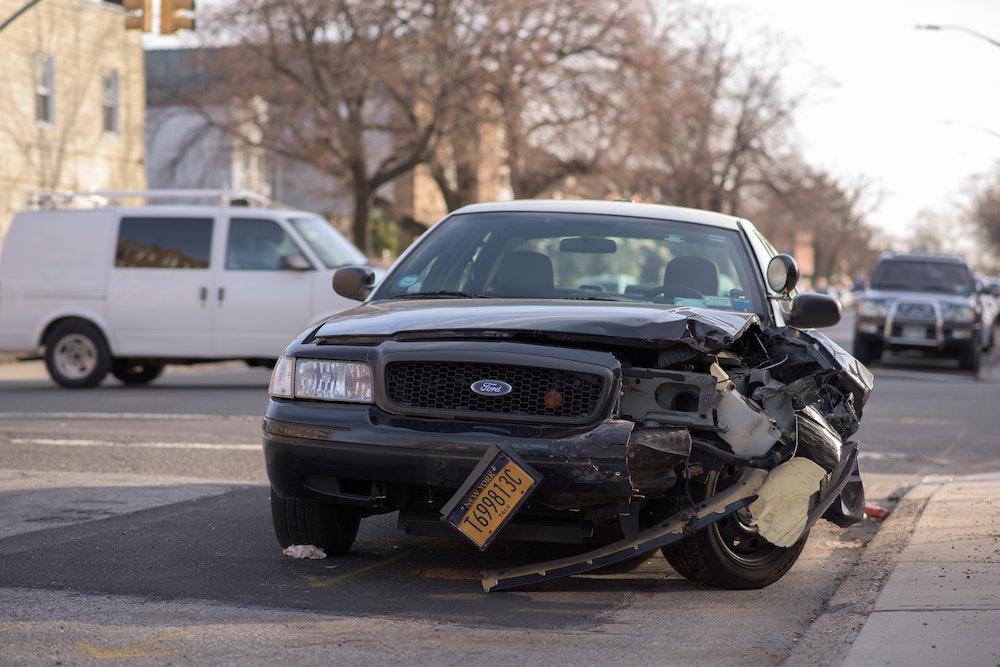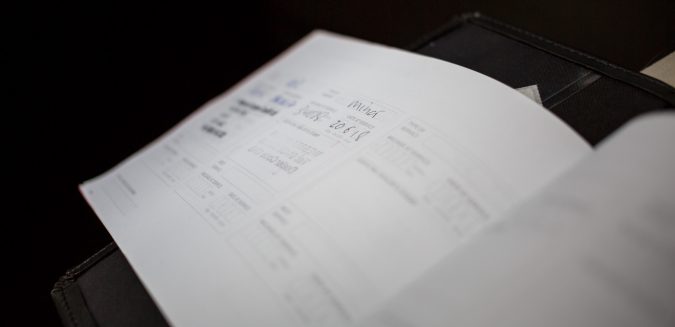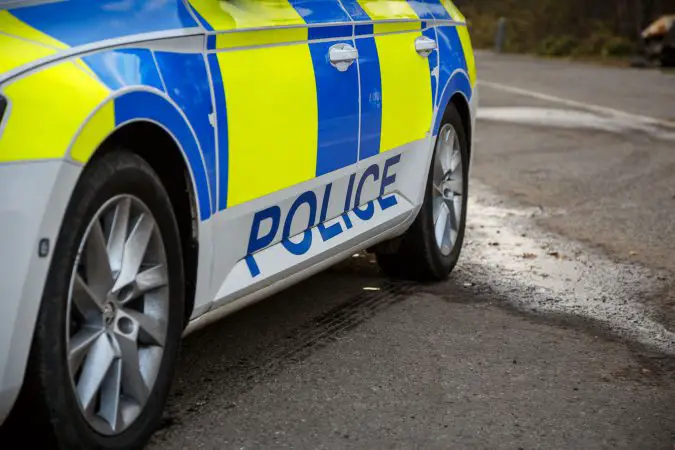Imagine yourself in this scenario… You walk out of your house on a bright and lovely morning, only to find some stranger’s car parked in front of your driveway. Or, you fell victim to a road rage incident, as the offender sped off into the sunset, never to be seen again. It’s in acute situations like these that you find yourself tearing your hair out in trying out how to find the owner of a car.
It’s a valid concern that you sometimes have to take it upon yourself to do it. The police or authorities won’t be there to help you out all the time. That’s especially so when your desire to find the owner of a particular car doesn’t involve breaking the law. Perhaps it’s out of curiosity, or wanting to call them out for a faux pas. In that case, there are numerous ways in how to find the owner of a car.
As you’re asking yourself about how to find the owner of a car, you’ll also be curious about one vital point. How is it can you identify a person just from their cars, anyway? Aha, we can lay thanks to the government for that one. In truth, there are many ways that you can specifically identify a vehicle by only looking at a few key details. Thus, you won’t merely have to rely on make, model, or color.
- How To Identify?
- What Can You Learn?
- Is This Legal?
- How To Find?
- Police
- State DMV
- Insurance
- Lookup Tools
- Paperwork
- Car Clubs
- Advertising
- Final Thoughts
How Can You Identify A Vehicle In The First Place?
In the early days of the automobile back in the late 1800s and early 1900s, there was no way for you or anyone to identify cars. They’re so rare back then, that it was fairly easy to pin down the owner of that one carriage without a horse pulling it. But sooner rather than later, instead of seeing a motor vehicle every so often, you’d start to see them everywhere. Dozens of cars became thousands.
At that point, the authorities needed a way for motorcar owners to be identified more easily. For the most part, it was to police the road better. Such as, for instance, knowing who to mail that speeding ticket to. Therefore, key identifiers were developed and mandated by law that pinpoints not just the owner, but also the vehicle. As we look at how to find the owner of a car, these two come to mind:
- License (aka ‘Number’ or ‘Registration’) Plate – Think of this as your car’s social security, where each vehicle has its distinct registration plate. And one that’s tied directly to you, signifying that this registration plate (and the vehicle that it’s mounted on) belongs to you. This is the best and quickest way for you to find out the owner of a car. If a human needs to carry an ID, a car has its plates.
- VIN (Vehicle Identification Number) – In this case, the VIN is your car’s birth certificate. This 17-digit sequence of characters comes stamped from the factory, validating that your car was built. Sure, the VIN is only tied to that vehicle, with no association from one owner to another. However, when you purchase and register a vehicle, the VIN is often included in the paperwork, alongside the plates.
What Else Can You Learn In A Vehicle’s History?
If all you’re concerned about is how to find the owner of a car, then you’re likely not curious about that car’s background. Nevertheless, and as you’re trying to find the owner of a car, you incidentally can learn much more about the said vehicle. This could prove important, especially if you might be worried about your (or others’) well-being. Here are some examples of what you might discover:
- Ownership and registration history of the vehicle, including its previous and current owners.
- Status of the vehicle, such as whether it’s being used as a rental or fleet car.
- Any outstanding liens, debt, repossessions, or other financial details about the car.
- Records of theft, and most importantly, whether that particular car is a stolen example.
- Previous or current owner’s criminal history, if there is one.
- Title certificates, such as if that vehicle has a clean title, or it’s been branded with a salvage title.
- Significant damage and repair records, for example, if there’s been frame or water damage.
- History and records of previous accidents, collisions, or information of the damage it sustained.
- Odometer readings and discrepancies, for instance, an unsanctioned mileage rollback.
- Insurance claims, or history around it being marked for total loss by the provider.
- Market and resale value on the second-hand market, as well as historical depreciation.
- Service records and maintenance history, knowing whether the car’s been cared for regularly.
- Specifications of a car, such as make, model, engine, gearbox, color, features, options, and more.
- Safety concerns around the car, like the issuance of recalls or the existence of serious defects.
- Usage in commercial scenarios, like the vehicle being used for deliveries, ride-hailing, etc.
Is Prying Into A Vehicle’s Ownership History Even Legal?
Seeing how much you could possibly unravel simply by understanding how to find the owner of a car, you might wonder if all of this is legal. The simple answer is Yes. It’s not illegal to simply search and ask around about who owns a particular vehicle. Although, it will be illegal if you take it too far when looking up the owner. For instance, harassing or stalking them. In this regard, you’re a felon.
Nonetheless, it’s worth mentioning that (for all the better, I’m sure) there are limitations on what you can note down. This is due to the Driver’s Privacy Protection Act, passed in 1994 to help preserve the liberties of drivers and their personal details. It’s for that reason why you can’t find PII, or Personally Identifiable Information, in your search. These can include details like full names and addresses.
With that being said, the authorities may permit you to find the owner of a car under some specific situations. Some examples include:
- Someone’s parked their car illegally in front of your residence, or a public area.
- Said vehicle was involved in an accident, and couldn’t be identified (i.e. hit and run).
- The owner or driver of that vehicle behaved threateningly to you or someone else.
- Road rage incidents, or if the owner and vehicle present a danger to others.
- You think you recognized that car from an advert as a stolen vehicle.
- Being seen parked near a crime scene, such as a recently-occurred robbery.
- The car and its owner were spotted actively participating in something illegal, like street racing.
- You’ve hit the car by accident, and want to send some reimbursements to the owner.
- Wanting to learn more about a used car and its history before buying it.
How To Find The Owner Of A Car?
Having now understood all that you’re able to learn from a car, how can you find its owner? There’s a myriad of ways that you can go about this. Each one will inevitably have varying degrees of success based on how much information you’re keen to figure out. Should you want to know how to find the owner of a car, be sure to jot down the license plate. A VIN on top of that might be helpful, too.
On most cars, among the places where the VIN might be etched onto is the windshield or the dash of said vehicle. Once you have at least the number plate in hand (the VIN is a good backup option, if all else fails), you can start hunting. Here are some of the many methods that you may employ in how to find the owner of a car, in order of urgency:
1. How To Find The Owner Of A Car, Option 1 – Call The Police
The first option in wanting to find the owner of a car is reserved only for grave situations where you feel that someone’s wellbeing is in danger. For example, if the car is involved in an accident, or if the owner of said vehicle is behaving oddly. If that’s so, then the first thing you should do is call the cops and explain your situation. Note, however, that they’ll only help if it revolves around a crime.
In these cases, such as hit and run incidents or if criminals are involved, it’s dangerous for you to deal with this on your own. A quick 911 dial should be your first instinct above all. Once an officer picks up on the other end, be sure to speak clearly of everything that you can observe. When it comes to the car, inform them of what you can see:
- Provide as much information as you can about what just happened. If there’s an accident, check to see if all other victims are okay, and let the operator know if an ambulance needs to called.
- Make, model, color, and any other distinctive or noteworthy features about the car that could make it easier to spot by the police.
- Does the car have distinct paintwork, damage or marks, as well as odd accessories and bolt-on kit that could make it stand out?
- Have a closer look at the driver of this vehicle, and if they have any passengers. Explain to the police details such as their appearance, facial features, or clothing.
- Registration plates, and if you’re able to get close enough, the car’s VIN. Remember, the VIN is often found on the driver’s side dashboard or the windshield.
2. How To Find The Owner Of A Car, Option 2 – Go To Your Local DMV
Should the occasion not be an emergency, then you could head over to your local DMV (Department of Motor Vehicles) offices. There, you can ask around, as well as make a formal request for details on the owner of a car. Mind you, there isn’t a guarantee that they’ll permit you this much information. That’s unless they feel that your concerns are valid, and could warrant an investigation.
For instance, let’s say you suspect that the seller of a used car is trying to defraud you. Or, maybe the car is constantly causing a nuisance, such as blocking your driveway. Should the inquiry be around a matter of crime (that isn’t an emergency) or regarding transferral of ownership, then the DMV would likely give it the all-clear. Bring the license plate, VIN, and any other supporting documents with you.
You’ll then be required to fill in some paperwork, as the DMV (if they’re giving you the green light) to supply an elaborate vehicle history. There are a few ways that you can go about enquiring with your DMV, which vary from one state to another. Just bear in mind, however, that the DMV will charge you fees for doing so. On average, expect a cost of anywhere from $5 to $20.
- Walk-In – Going for an in-person appointment with the DMV is always the best option. Plus, you can usually get the report on the same day.
- Online Portals – Most DMVs are keeping their records online. Hence, you’re able to log in and inquire about details on a car and its owner more readily.
- Email Or Phone – Contacting the DMV this way will take some time for them to get back to you. Most often, the vehicle report (once the payment is made) will be delivered by mail.
3. How To Find The Owner Of A Car, Option 3 – Your Insurance Company
The insurance company that covers your car probably has far more sources and avenues to find the owner than you ever could. Let’s say you saw someone else drive their car into yours, and caught a glimpse of their license plates. If the situation doesn’t require the police right away, then you could give your insurance agent a call. Then, you can start filing a claim for damage or theft.
This is particularly helpful because insurance agents normally have nearly unfettered access to vehicle records at the DMV. They can go through detailed insurance databases to find the exact owner of a car. Just remember, as you’re filing a claim and speaking to your agent, to be honest. In addition, furnish them with as much information around the incident, damage or theft, as is possible.
4. How To Find The Owner Of A Car, Option 4 – Online Lookup Tools
This option, once again, should be reserved for non-emergencies. Primarily, online lookup tools often cost money if you want complete and thorough details about a particular vehicle. Furthermore, they don’t usually include any information about the owner at all. This is owing to privacy laws and their lack of direct access to registries held by the police or DMV. Still, you could learn quite a lot.
Online car lookup tools typically require either one of two things to start searching – the license plate, or the VIN. Some of these even go above and beyond, with incredibly detailed information about any vehicle that you run through its database. Others, on the other hand, have built an entire community around looking up cars. You could post videos and photos of a car, or leave comments behind.
In no particular order, here are some of the best car-owner lookup tools online. Just be mindful of the fees, and take the information you gained with a grain of salt. Most online lookup tools cost nothing at all for a simple preview, such as detailing the make and model, or VIN. But should you want more than that, such as a complete rundown on its history, condition, and ownership, it’ll cost you.
The cheapest you can expect for a detailed vehicle report is priced at roughly around $5. With that said, most will set you back nearly $10 or sometimes upwards of $15 for a single print-out. Just remember that what you unravel with online lookup tools may not be 100% accurate or fully verified. Some of them even include a fine-print, recommending that you independently verify every detail.
5. How To Find The Owner Of A Car, Option 5 – Go Through The Paperwork
Here’s another scenario… You just sold your car, and want to find who the new owner is. Perhaps it was sold through a dealership, without much involvement from you. Or, you’d want to buy back the car for whatever reason. Should there be a change of ownership, it should be relatively easy for you to know how to find the owner of a car. In simple terms, sift through the paperwork.
Either as the seller or buyer, you and the other party (past or present owner) will no doubt have an abundance of supporting documentation with their personal details. Most notably, their identity. If you happen to find yourself in this situation, start digging through. In particular, seek out the:
- Title – A car’s title (or ‘certificate of title’) is a legal document that acts as proof of ownership. Any transaction, such as buying, selling, or trading in a car, will involve the title changing hands. In quite a lot of cases, the title also includes the owner’s names, as well as ownership changes.
- Bill Of Sale – In many states, a bill of sale is a must-have document anytime you’re buying or selling a car. It contains details around the change of ownership, such as the names of both the buyer and seller. It can also include addresses, as well as contact information.
- Insurance – Should this concern a car that you previously owned, you can look through old insurance papers. It’s especially helpful, for example, if you’ve made insurance claims before on an accident or theft, and still kept the records.
6. How To Find The Owner Of A Car, Option 6 – Car Clubs And Forums
As they say, secrets can be hard to keep when you’re in a tightly-knit community. This is another great place to start in how to find the owner of a car. Albeit, it’s tedious and will take quite a long time as you’re essentially asking around. Moreover, this method will yield good results only if the vehicle is intriguing or distinct. Say, you spotted a rare or limited edition car or a unique vintage model.
Among enthusiasts, few things go unseen. There is an abundance of online car communities, clubs, forums, or blogs where chatter takes place endlessly. More than once before, the members in these chatrooms and online discussions have tracked down vehicles with great accuracy. Or, and if you’re lucky, you might actually get to meet the actual owner there, and have a chat.
Here are some simple tips to get you started:
- Note down anything you can observe about the said vehicle. Especially, key details such as its make and model, distinct color or trim, and if it had any peculiar accessories. Should you be knowledgeable or had done some research beforehand, don’t be afraid to be a bit nerdy when detailing it with others.
- Search for car clubs, forums, and communities on Google. It may mostly be a hit and miss. You could try more general websites that discuss a wide variety of vehicles from many makes and models. Or, you can try to narrow it down to a specific online forum dedicated to a particular car.
- Some online car clubs even list their members by name and contact details. This should enable you to more easily find the precise owner.
7. How To Find The Owner Of A Car, Option 7 – Advertising Campaigns
The final method that you can try is advertising your desire in how to find the owner of a car. It might not be the most effective way, nor might it yield any contact with the owner at all. Nevertheless, it’s worth a shot. This is worthwhile if you really want to seek this vehicle, either to buy or as a point of curiosity. Alternatively, you may wish to make contact and inform its owner about something.
Either way, here are some paths that you can take with advertising the car:
- Newspaper Ad – It’s a bit old-school, and only really works if the car and owner in question are local. You can leave descriptions about the car, reasons for wanting to find the owner, and how the owner might contact you. Just pray that they read the newspaper.
- Classifieds – Just like searching through online communities, this only works with cars that are unique or worthy of the hassle. You can post classified-type ads through car magazines, as well as online car publications and blogs. If you want to buy that car, you can post a Wanted ad on a used car site, too.
- Social Media – A more broad-sweeping approach would be going online and trying to search for (or call out) the owner. Networking platforms like Facebook, Twitter, or even Craigslist are good places to start. The addition of photos, videos, and other media could aid in your search.
Tips to Find the Owner of a Vehicle
- In case of an accident or hit-and-run, one should notify the police with as much information as possible, including the make, model, license plate number, and VIN of the car.
- Insurance companies have resources available that can help identify the owner of another car if you file a claim or investigate a future claim.
- The Registry of Motor Vehicles can identify the owner of a car using its license plate or VIN, but they may not give that information to you directly.
- Online VIN reference checks can help identify a car’s prior owner, but you should be cautious about using the results as many search sites are unlikely to provide personal information due to privacy concerns.
- Check the title and bill of sale for information that identifies the seller and buyer of the car.
- Accident or insurance reports of a car you previously owned may contain the car’s VIN, which you can search online.
- Car clubs can help identify the owner of a special type of car by searching for listings of clubs dedicated to car enthusiasts.
- Advertising through a newspaper or car magazine, or posting on social media, can help reach out and find a car owner.
- Be careful not to post too much personal information and only arrange meetings in safe locations.
- Always independently verify any information you recover from search results.
Final Thoughts
That rounds up our guide on how to find the owner of a car. Indeed, you have bountiful options when it comes to trying to narrow down your search for the owner of a particular vehicle. For whatever the reason or occasion may be, it’s not impossible or illegal (to a given extent) to dig through these. If that doesn’t suffice, then you’ll soon realize that the owner’s details aren’t the only things you can learn.
You’re able to be more keenly aware of its history, condition, and ownership. If this is an emergency, your best bet when it comes to how to find the owner of a car is to call the police. If immediacy isn’t an issue, the DMV or online lookup tools are a great alternative. Should you’ve had a connection with the car, go through the paperwork. If that doesn’t work, an ad or chatting in the forums should help.




